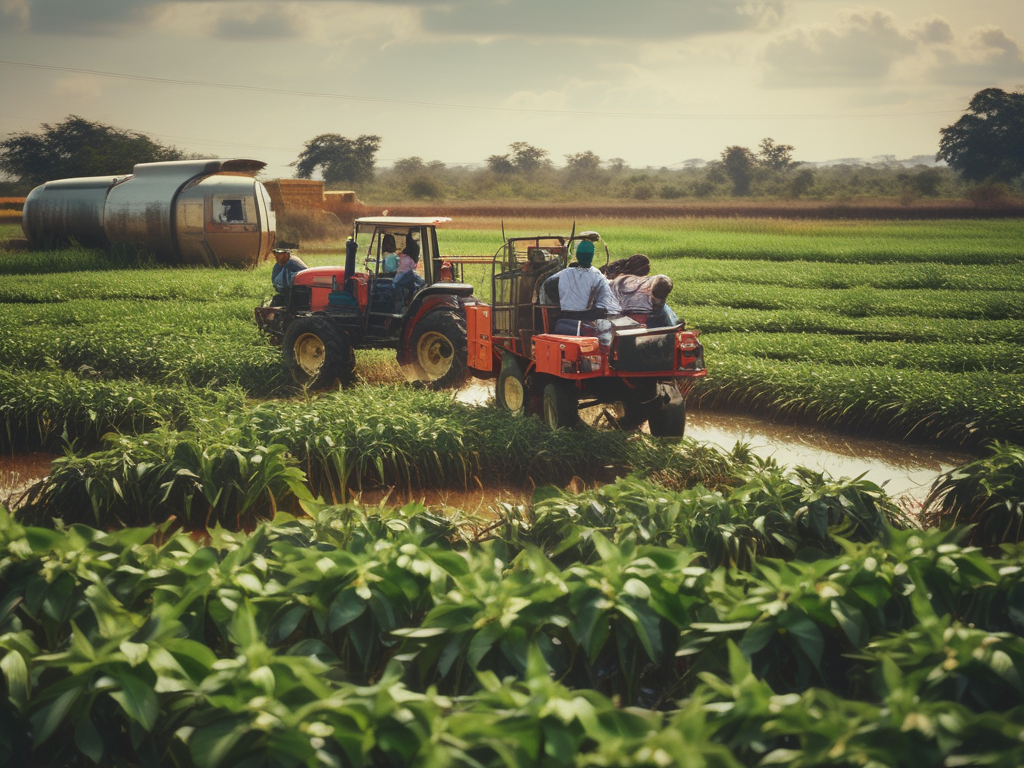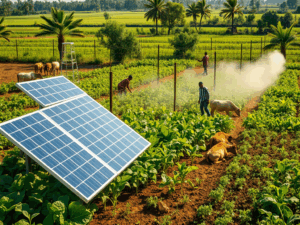Agribusiness is the backbone of many African economies, including Nigeria’s. Yet, financial stability remains a significant challenge for many agripreneurs. Achieving financial stability in agribusiness involves strategic planning, smart investments, and effective risk management. Here are some key steps to help you secure a stable financial future for your agribusiness, with verifiable examples from Nigeria and the rest of Africa.
1. Diversify Your Income Streams
Overview:
Relying on a single source of income can be risky, especially in agriculture, where factors like weather, pests, and market fluctuations can affect production. Diversifying income streams helps mitigate these risks and ensures a steady flow of revenue.
Strategy:
Consider integrating various agricultural activities, such as crop farming, livestock rearing, and agro-processing. Additionally, explore opportunities in agritourism, consultancy, and training.
In Nigeria, the Oke-Aro Pig Farm diversified its operations by adding poultry farming and a feed mill. This diversification has stabilized their income and provided a buffer against market volatility.
2. Access to Finance and Investment
Overview:
Securing adequate financing is critical for scaling operations and achieving financial stability. Explore various funding options, including loans, grants, and partnerships with investors.
Strategy:
Develop a robust business plan to attract investors and apply for agricultural grants and loans offered by government and non-governmental organizations.
FarmCrowdy, a digital agriculture platform in Nigeria, connects smallholder farmers with investors, providing them with the necessary funds to expand their operations. This model has helped many farmers achieve financial stability and grow their businesses.
3. Efficient Financial Management
Overview:
Effective financial management is crucial for the sustainability of any agribusiness. Keeping accurate records, budgeting, and monitoring cash flow can prevent financial pitfalls.
Strategy:
Invest in accounting software tailored for agribusinesses to streamline financial management processes. Regularly review financial statements and make data-driven decisions.
In Kenya for example, the “Digifarm” platform offers farmers digital tools to manage their finances, track expenses, and monitor profits. This has improved financial literacy among farmers and enhanced their financial stability.
4. Implement Risk Management Practices
Overview:
Agriculture is inherently risky due to factors like weather, pests, and market fluctuations. Implementing risk management practices can safeguard your business against unforeseen events.
Strategy:
Diversify crops, adopt climate-resilient farming techniques, and consider agricultural insurance to protect against losses.
Example: In Zambia, the “Weather Index Insurance” scheme provides smallholder farmers with insurance against weather-related risks. This program has helped farmers recover from losses and maintain financial stability despite adverse weather conditions.
5. Value Addition and Market Access
Overview:
Adding value to agricultural products and improving market access can significantly enhance profitability. This involves processing raw products into finished goods and establishing direct market linkages.
Strategy:
Invest in agro-processing equipment and establish partnerships with retailers, supermarkets, and export markets to sell value-added products. In Ghana, the “Blue Skies” company processes fresh fruits into juice and exports them to international markets. This value addition has increased profits and ensured financial stability for the farmers supplying the raw materials.
6. Continuous Learning and Adaptation
Overview:
Staying updated with the latest trends, technologies, and best practices in agriculture can provide a competitive edge and ensure long-term success.
Strategy:
Participate in agricultural training programs, workshops, and conferences. Network with other farmers and industry experts to share knowledge and experiences. For instance, the Songhai Centre in Benin offers training programs that combine theoretical knowledge with practical skills. Farmers trained at the center have reported increased productivity and financial stability.
Conclusion
Achieving financial stability in agribusiness requires a multifaceted approach that includes diversifying income streams, securing adequate financing, implementing efficient financial management practices, managing risks, adding value to products, and continuous learning. By adopting these strategies, agripreneurs in Nigeria and across Africa can build resilient and profitable agribusinesses.
Call to Action:
If you are an agripreneur striving for financial stability, start by assessing your current operations and identifying areas for improvement. Invest in education, embrace diversification, and seek out financial support and partnerships. By taking proactive steps, you can secure a prosperous and sustainable future for your agribusiness. Don’t wait—start your journey towards financial stability today!




